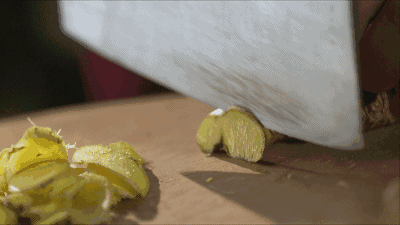Click the above ↑ “ Traditional Chinese Medicine Tang Lue ” Follow Us

This story comes from Mr. He Lianchen’s “Compilation of Famous Doctors’ Clinical Cases in China,” featuring a medical case from Xiao Zhuoru in Xiangxiang, Hunan.
Mr. Xiao was originally a teacher but delved into medicine and achieved a high level of expertise, thinking outside the box.
Once, a relative of his family had been suffering from constipation for a long time. Previous doctors had tried various methods, but none were effective.
Not only was the constipation unresolved, but gradually urination also became difficult, and he started to experience abdominal distension.
Then another doctor came and said that the previous prescriptions lacked potency and needed to heavily use Da Huang (Rhubarb) and Mangxiao (Glauber’s Salt) to forcefully relieve the constipation.
Guess what? After taking the medicine, did the constipation improve?
Not at all!
Not only did the constipation worsen, but the patient also lost all strength.
When Xiao Zhuoru returned home to check on his uncle, the pulse was deep, slow, and tight, clearly indicating a cold pattern. He diagnosed it as cold accumulation and prescribed a formula using Fuzi (Aconite), Ganjiang (Dried Ginger), Shengjiang (Fresh Ginger), and Gancao (Licorice), with particularly large dosages.

Initially, his uncle was hesitant to take it because traditionally, people treat constipation either with Da Huang and Mangxiao to purge or with Mahuang (Ephedra) to moisten. It is rare to hear of using Fuzi and Ganjiang, which are hot and drying herbs, to treat constipation.
However, this was a cold-type constipation, so hot herbs were necessary.
After taking the medicine, the patient did not feel much heat or spiciness. Moreover, the symptoms quickly diminished, and bowel movements resumed.
Thus, it is said that there are no fixed methods or thoughts in treating diseases; the key is to look at the specific situation and apply differential diagnosis and treatment.
There is also a famous TCM formula called Banxie Wan (Half-Sulfur Pill).
It is made from Banxia (Pinellia) and Sulfur, also used to treat this type of yang deficiency constipation.
In the past, I never believed that such hot and drying herbs could treat constipation.
If it were a yin deficiency with heat-type constipation, it would definitely worsen with more intake, but if it is yang deficiency constipation, it would surely be effective.

When we talk about the properties of herbs, a certain formula or herb has a certain effect, it is actually based on the premise of matching the syndrome. If it does not match, it will not have that effect!
This is why some prescriptions from doctors do not work. Because they did not grasp the condition!
Under one disease name, we can differentiate many types and categories.
When encountering a patient, their condition may be this type or that type; we should not only recognize one aspect.
Some constipation requires Da Huang and Mangxiao (for dry stools in the intestines);
Some constipation requires Fuzi and Ganjiang (yang deficiency cannot descend qi);
Some constipation requires promoting lung qi (the lung and large intestine are interrelated);
Some constipation requires Danggui (Angelica) and Mahuang to nourish yin (increase moisture to facilitate movement);
(Medication should be based on differential diagnosis and treatment; please use under the guidance of a physician.)
The key is to identify the cause of the disease and grasp the crux of the issue.
If one sees this medical case where Fuzi and Ganjiang can treat constipation and then criticizes Da Huang and Mangxiao, that would be another serious misunderstanding.
Related Reading

